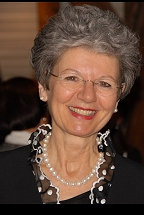
Prof Verena Briner, MD, FACP |
| Does this patient have an impaired immune system? (Reserve)
There are congenital and acquired forms of immunodeficiency syndromes. Adult patients with frequent pulmonary infection may have various causes such as chronic bronchitis, bronchiectasis, aspiration, etc. However, some may have no or very low production of IgG. The lecture is focusing on those cases who may benefit from immunoglobulin substitution. |
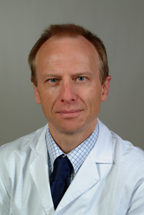
PD Dr Christoph Henzen, MD |
| Lecture 2: Hypercalcemia
Hypercalcemia is a common electrolyte disorder affecting up to 2.5% of people aged 60 years and older. Only a minority of the patients present with the classical “stones, bones, groans and moans”, i.e. symptoms often are subtle and determine the treatment.
|
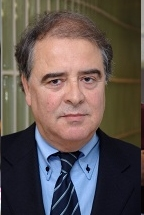
Prof Ramon Pujol Farriols |
| Welcome and Chairing Clinico-Pathological Conference 1 |
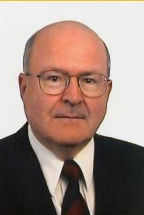
Dr Werner Bauer MD FEFIM FACP |
| Lecture 1: ‘Professional Issues facing Internal Medicine in Europe’
Health reform discussions revolve around how best to achieve the goals of improving quality, increasing the access to care, and cost containment. In the current health reform debate, little attention is paid to how medicine is currently taught and practiced. Internal Medicine does appreciate that the fundamental tenets of health arise from understanding the interaction among genomics, the external environment, and behaviour. Modern medicine often neglects this comprehensive model and treats disease in isolation, without taking into account the dynamic, integrative systems in the human body. I.M. can revive the essential approach in medical education and promises greater precision in diagnosis, opportunity for earlier intervention, risk-based prevention, and individualization of care. |
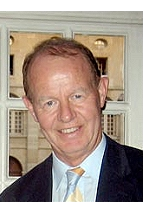
Dr Christopher Davidson MB FRCP FESC FACP |
| Workshop 1 and Lecture 3: Atrial fibrillation Atrial Fibrillation remains a challenge for the internist as well as the cardiologist. When should we anti-coagulate and with what? At what level do the risks of haemorrhage outweigh the risk of stroke in an increasingly elderly patient population? And when should we refer the patient for more complex procedures such as radio-frequency ablation? We will discuss how the latest evidence should govern our decisions through a number of case scenarios. |
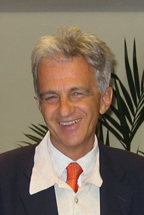
Prof Pier M Mannucci Chief Editor European Journal Internal Medicine |
| Lecture 4: How to start writing a scientific paper
The purpose of this talk is to explain to the audience how to write a scientific paper. The choice of the journal, the structure of the article, the process of submission and also how to handle with the sad news of rejection will be dealt with. The participants will also be provided with info on some tools, tips and tricks to be used to have more chances of being successful. |
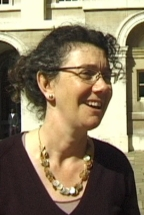
Dr Shirley P Rigby MD BSc MBBS MRCP |
| Workshop 2: ‘Oral Presentation Skills for the Internist’
By the end of this lecture you will be able to:
|
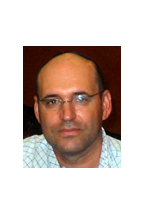
Dr Dror Dicker |
| Lecture 5: Incretin, Diabetes mellitus and Adipositas
Early and aggressive treatment will become the main targets in the treatment of type 2 diabetes mellitus aiming to achieve good control of blood glucose without hypoglycemia and weight gain. In this sense Incretins are a new drug class that can fulfil these targets. Incretins such as glucagon-like peptide-1 (GLP-1) are gut-derived hormones that stimulate insulin secretion and suppress glucagon secretion. The diminished secretion of GLP-1 in of type 2 diabetes mellitus has led to the development of two different treatment approaches. Since native GLP-1 is rapidly degraded by DPP-4, GLP-1 receptor agonists have been developed to resist DPP-4 inactivation while exhibiting many of the actions of endogenous incretin hormones. DPP-4 inhibitors function as incretin enhancers by protecting endogenous GLP-1 from enzymatic breakdown. Treatment of diabetic patients with drugs from the incretin family is one of the basic and central treatment tools available to the clinician today. This treatment is as efficient as the other known oral antidiabetic drugs, and it is safer than sulfonylurea when comparing the incidence of hypoglycemic events. In my lecture we will discuss the incretin use in type 2 diabetes mellitus patients and their extra pancreatic effect |
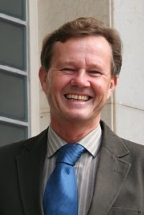
Prof Stefan Lindgren MD PhD FACP FRCP FEFIM(hon) |
| Lecture 6: Evaluation of patients with pathologic liver function test
Liver diseases are in more than 80% of cases diagnosed as a consequence of findings of elevated liver function tests. They may have been ordered due to suspicion of liver disease, or as part of a more general investigation. It is important to have a structured approach to these patients; to diagnose significant liver diseases, particularly where early treatment strongly influences the prognosis, and to avoid extensive investigations and follow-up in patients with drug or alcohol related liver disease and steatosis related to over-weight. In addition to etiological diagnosis, evaluation of the stage of liver disease and potential complications is necessary to plan treatment and follow-up. |
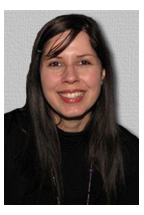
Carla Araújo Pimentel |
| Workshop 3: Young Internists: life and work in medicine
During the workshop we will introduce the European working time directive and discuss its impact on the training of doctors across Europe, European healthcare systems and their budgets and the discrepancy between officially claimed and real working hours of doctors. We will compare the situation in different European countries and compare different solutions to this problem. |

Prof Pedro Conthe |
| Chairing Clinico-Pathological Conference 2 |

Prof Marco Maggiorini |
| Lecture 7: High altitude, high/low temperature
By the end of my lecture you will be able to
|
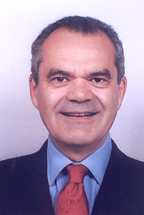
Prof Daniel Sereni, FRCP, HFACP, HFEFIM |
| Lecture 8: Gender and auto- immune diseases
A majority of auto-immune diseases are more frequent and more severe in women than in men. What are the real importance and the clinical implications of these differences? What do we know about the physiopathological basis of gender influence? What are the relationships between hormones and auto-immunity? What are the consequences of gender differences on treatment and follow up of auto-immune diseases? |

Dr Anke von Sengbusch |
| Workshop 4: Difficult situations in clinical practise
In our daily hospital work we face many challenging situations – medically and sometimes emotionally. This workshop wants to give room to discuss situations that can be difficult to deal with because we are emotionally challenged or have to make critical decisions. Three typical cases are discussed in the subgroups: conveying a serious diagnosis, caring for a dying patient and dealing with medical errors. A personal intercultural exchange can help to develop new strategies to handle these situations in the future. http://theoncologist.alphamedpress.org/content/5/4/302.full.pdf+html |

Dr Jan Willem F Elte MD PhD FRCP FACP FEFIM(hon) |
| Lecture 9: Thyroid nodules
The prevalence of thyroid nodules is 4 – 7 % and approximately 10 % is malignant. One to two thousand people die each year from primary thyroid carcinomas. |
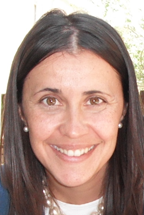
Dr Belén Redal-Baigorri |
| Lecture 10: Identification and treatment of chronic kidney disease for specialists in internal medicine
Chronic Kidney Disease affects about 10-12% of the population and prevention of progression to end stage renal disease where dialysis is needed, is one of the global initiatives among nephrologists
|
